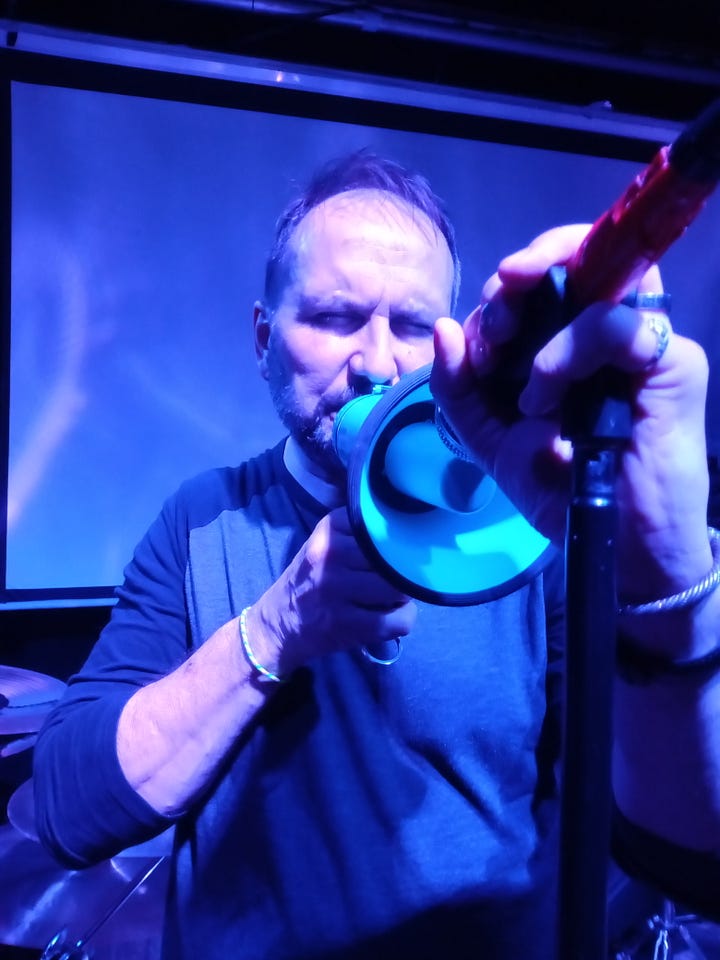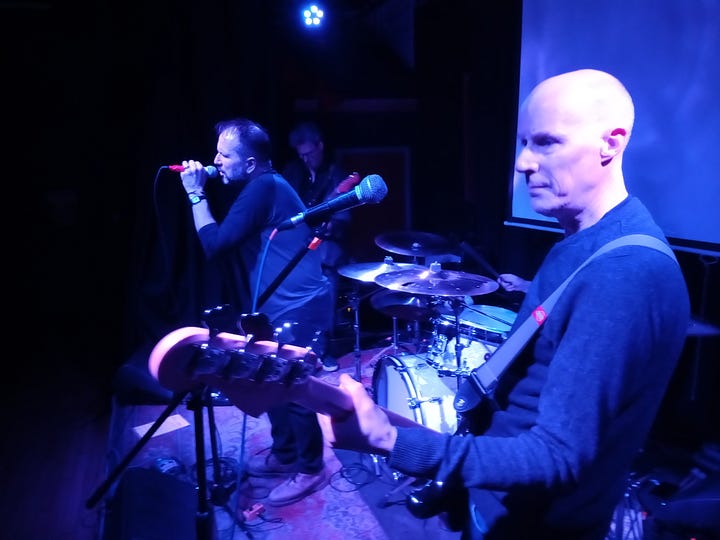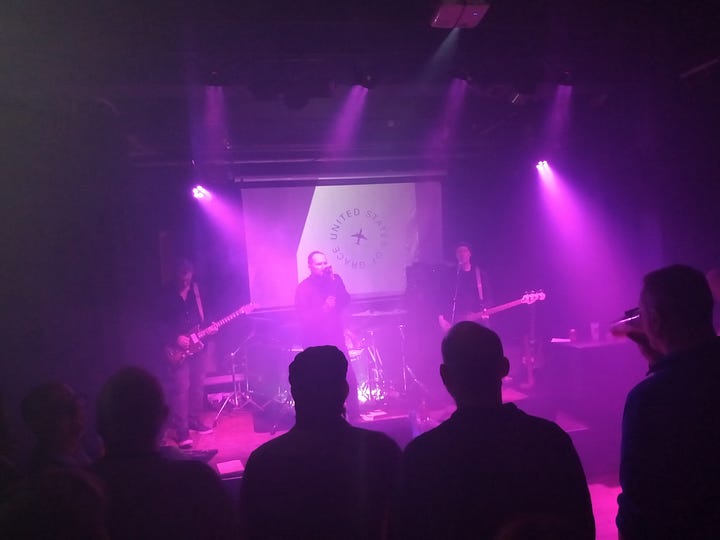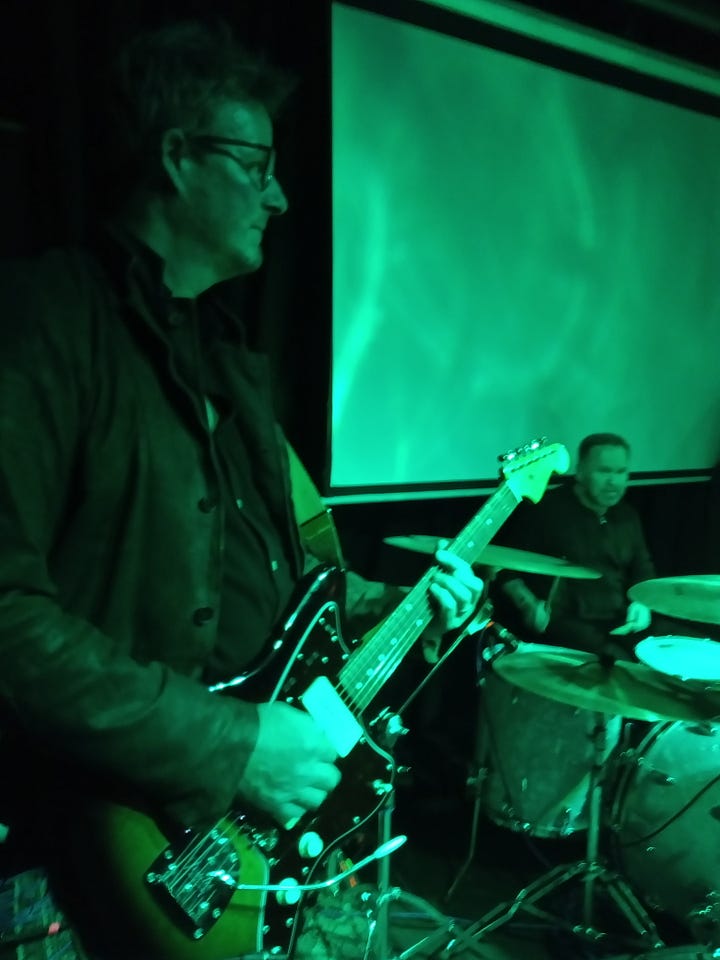A short intro this week, but as always - after me waffling a bit, ten good things. I’m down in Sussex, starting up a new commission with Engage and Fabrica which will be properly announced soon, and catching up with members of Pulaski, a band I worked with in the 1990s. They are in a new band, United States of Grace, who played at Brighton Electric on Saturday - a brilliant building with 15 rehearsal rooms, two recording studios, a venue, and a bar. It’s a remarkable bit of infrastructure, all built by one person.




Yesterday afternoon, recovering from the gig, I watched a buzzard being mobbed by crows. There’s nothing unusual in that - except that it happened over my dad’s back garden, on the Maybridge Estate in Worthing. When I was a child, my dad took me birdwatching, and he ran the local Young Ornithologists’ Club. Buzzards weren’t local - they were rare things, only found in Wales or the West Country on our annual PGL holiday. There’s been an 80% increase in their population since the 1980s, and for the last decade they’ve been the UK’s most ubiquitous raptor. Isn’t that incredible?
“I feel real hope. I’ve worked as an ecologist for 40 years, and this is the most optimistic time in my career without a doubt. We are visibly, measurably recovering nature and that is so exciting, it is a real buzz. That hope is so precious.” David Brown, the National Trust’s nature director at Purbeck, shortly before the first free release of beavers in the UK.
The UK and Ireland are making plans for connections between the growing number of offshore windfarms and onshore national energy network.
Scottish conservationists are turning the Inverbroom hunting estate into a rewilding showcase after a mystery benefactor gave them more than £17.5m to buy it. It’s a huge rewilding project.
The organisation Wild Card is calling for Church of England’s Commissioners to rewild 30% of the 105,000 acres they own by 2030. On 1st March, a Climate Choir flashmob burst into song in St Paul’s Cathedral to make the point. A joyful noise unto the lord, and all that.
This rather neat little electric truck should be in production soon. It’s a lovely chunky thing - it feels to me rather important that it’s not trying to look like an electric version of a petrol-engine car.
I keep looking at the work of Lacol, an architects’ co-op in Barcelona. They carve interesting things out of spaces, like this centre for other co-operative groups to share. I’m not sure if I want to make something ‘permanent’, as I like temporary things and I like to pass the power on in projects, but a bit of me is thinking that, as I get older, maybe I should make something that is a permanent, solid building.
The Lakenheath Peace Camp are holding a series of workshops, from social media to writing folk songs.
The RSPB will be taking over the management of Wiltshire Council’s Roundbarrow Farm. This former intensive dairy farm will become a sheep and cattle-grazed chalk grassland farm and woodland. Wiltshire is home to roughly half of the UK’s chalk grassland – we’ve lost 80% of these grasslands, and the species they support have faced severe declines. The new RSPB Roundbarrow nature reserve will provide a haven for chalkland species and help a variety of birds, including rare Stone-curlews.
Which - frankly - look like something from a Dr Seuss book. The googly-eyed Stone-curlew was once a more common spring and summer visitor to England, but they nest in really stupid places. So the RSPB built strong relationships with farmers, gamekeepers and landowners to see how they could work together to help protect Stone-curlew nests. There are nearly 350 breeding Stone-curlew pairs nationally, compared with around 150 back in 1985.
Thanks Iain for introducing me to the music of Sunny War this week:
And you’ll never truly break away or ever leave their side
Your humanity does not outweigh your will to survive
You associate survival with the order they provide
Like the government is vital for a people’s chance to thrive




I too was exalted by the beaver release!